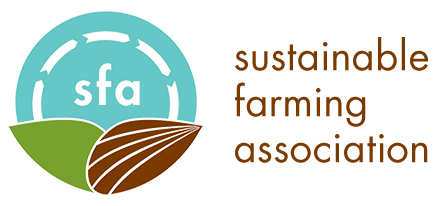Take Action in Wake of Timely Report Illustrating Challenges to BIPOC Farmers
 Our friends at Green Lands Blue Waters shared “Leveling the Fields: Creating Farm Opportunities for Black People, Indigenous People, and Other People of Color,” a new report being issued by the Union of Concerned Scientists and HEAL Food Alliance. I encourage you to read the report then take action in observation of Juneteenth, tomorrow’s holiday commemorating June 19, 1865, when enslaved African Americans in Galveston, Texas, were told by Union soldiers that, two years earlier, President Lincoln had issued the Emancipation Proclamation.
Our friends at Green Lands Blue Waters shared “Leveling the Fields: Creating Farm Opportunities for Black People, Indigenous People, and Other People of Color,” a new report being issued by the Union of Concerned Scientists and HEAL Food Alliance. I encourage you to read the report then take action in observation of Juneteenth, tomorrow’s holiday commemorating June 19, 1865, when enslaved African Americans in Galveston, Texas, were told by Union soldiers that, two years earlier, President Lincoln had issued the Emancipation Proclamation.
Today, 155 years later, barriers and injustices in the U.S. food and farming system have been planted, grown and compounded. To build a regenerative system of agriculture, these barriers cannot stand.
Highlights of the report: Farming offers a powerful path to build community wealth and resilience to challenges such as water pollution, droughts and floods, and lack of access to healthy food. However, U.S. agriculture — particularly the pursuit of sustainable agriculture — is rife with obstacles for Black people, indigenous people, and other people of color (BIPOC), including immigrants, migrants, and refugees. These obstacles include difficulty securing capital, credit, land, infrastructure, and information. For these groups, such challenges are compounded by longstanding structural and institutional racism. The report outlines opportunities for governments, the private sector, philanthropies and others to contribute to simultaneously building socioeconomic equity and sustainability in U.S. food systems. To begin overcoming the history of racist policies and exclusion, it is their primary recommendation that solutions be developed by and with — rather than for — BIPOC communities.
This report resonates loudly right here. “Emerging Farmers In Minnesota” summarizes input and suggestions from several town hall meetings held throughout our state and shines a spotlight on the unique challenges faced by BIPOC farmers. The report was presented to the legislature in February, which then authorized a 15-person Emerging Farmers Working Group that will be launched later this summer. Minnesota Dept. of Agriculture Assistant Commissioner Patrice Bailey will be issuing application/nomination information by July 1 for service on the Working Group. One way to take action is to help recruit a qualified person(s) to serve. Another is to figure out which barriers to sustainable farming experienced by BIPOC communities you are best equipped to help confront.
Still another way to take action is to contribute directly to address food justice by supporting the Local Emergency Assistance Farm Fund, hosted by the Good Acre with support of several groups, including SFA. The LEAFF fund supports farmers who are experiencing market disruption due to COVID-19 and the George Floyd murders by purchasing locally grown produce at fair market value prices and distributing to those most in need.
Thank you for your support of SFA and equity in our farm and food system.
